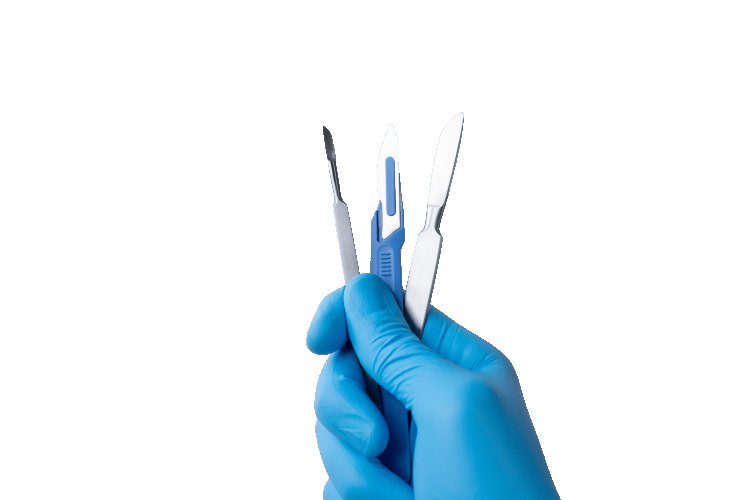The Importance of High-Quality Instruments in Dental Procedures
Discover the importance of high-quality instruments in dental procedures, enhancing precision, patient comfort, safety, and overall treatment outcomes.

In the field of dentistry, the dental tools and instruments used during procedures play a critical role in ensuring successful outcomes. High-quality dental instruments are essential for providing accurate, efficient, and safe care for patients. Whether it's a routine check-up or a complex procedure, the quality of the tools can significantly impact both the patient's experience and the overall success of the treatment. In this article, we will explore why high-quality instruments are vital in dental procedures and how they contribute to better oral health care.
1. Enhanced Precision and Accuracy
Dental procedures require extreme precision, as even minor errors can lead to complications. High-quality instruments, such as precision scalers, forceps, and dental drills, are designed to provide better control and accuracy, ensuring that the procedure is done correctly.
- Sharp and Durable Tools: High-quality instruments are often made from durable materials like stainless steel or titanium, which help maintain sharpness for a longer period. Sharp tools allow dental professionals to work with greater accuracy, minimizing the risk of damage to surrounding tissues or structures.
- Precision in Restorative Procedures: For procedures like fillings, crowns, or implants, the precision of instruments ensures that restorations fit perfectly, enhancing the overall outcome and longevity of the treatment.
2. Improved Patient Comfort
One of the most significant factors in dental care is patient comfort. Low-quality or worn-out instruments can cause discomfort, increase procedure time, and even contribute to complications. High-quality tools are designed not only for precision but also for patient comfort.
- Less Invasive Treatments: High-quality instruments help dentists perform less invasive procedures, reducing the need for excessive manipulation of tissues or prolonged treatment times. This can significantly reduce pain and discomfort for patients.
- Faster Recovery: High-quality tools that are designed for optimal performance can make treatments more efficient, leading to faster recovery times and reduced post-procedure pain.
3. Increased Efficiency and Time Savings
High-quality dental instruments are designed for optimal performance, reducing the likelihood of errors or delays during procedures. This efficiency not only benefits the dentist but also ensures that patients receive timely care.
- Fewer Interruptions: High-quality instruments are less likely to malfunction or need frequent adjustments, which can interrupt the flow of the procedure. This allows the dentist to work more efficiently, often completing procedures in less time.
- Consistency in Performance: Consistency is crucial in dental work, especially in complex treatments. High-quality instruments provide consistent performance, ensuring that every step of the procedure goes smoothly.
4. Improved Longevity and Cost-Effectiveness
While high-quality dental instruments may have a higher upfront cost, they are more cost-effective in the long run due to their durability and performance. Quality tools are designed to withstand repeated use without losing their effectiveness, reducing the need for frequent replacements.
- Durability and Resistance to Wear: High-quality instruments are made from materials that are resistant to corrosion, wear, and breakage. This ensures that they continue to perform well over time, providing long-term value to dental practices.
- Lower Maintenance Costs: With fewer repairs or replacements required, dental offices can save money on maintenance and repairs, leading to lower overall operational costs.
5. Safety and Sterilization
Patient safety is a top priority in dental procedures, and high-quality instruments are crucial in maintaining hygiene and preventing the risk of infection. High-quality tools are easier to sterilize and more resistant to damage from cleaning agents and autoclaving processes.
- Non-porous and Smooth Surfaces: High-quality instruments often have smooth, non-porous surfaces, which make them easier to clean and sterilize. This reduces the risk of cross-contamination between patients.
- Maintaining Sterility: Tools made from premium materials maintain their structural integrity during sterilization processes, ensuring that they remain safe and effective for use in patient care.
6. Better Aesthetic Outcomes
In restorative and cosmetic dentistry, the appearance of the final result is paramount. High-quality instruments allow for better finishing of procedures, ensuring that dental work such as crowns, bridges, veneers, and implants looks natural and aesthetically pleasing.
- Fine Detailing: Tools that offer precision in shaping, polishing, and placing dental restorations help achieve the best possible aesthetic results. This is especially important in procedures that affect the patient's smile and overall appearance.
- Improved Patient Satisfaction: The combination of precision, comfort, and aesthetic results from using high-quality instruments leads to higher patient satisfaction, enhancing their overall experience.
7. Supporting Innovation and Advancements
The field of dentistry continues to evolve with new technologies and techniques emerging regularly. High-quality instruments are essential for implementing these advancements, ensuring that dental professionals can use the latest tools for the most effective treatments.
- Integration with Modern Technology: Instruments designed for compatibility with modern dental technologies, such as laser systems or digital imaging, help dental professionals provide the highest level of care. High-quality tools can seamlessly integrate with these innovations, enhancing treatment outcomes.
- Adaptability to New Procedures: As dental procedures evolve, high-quality instruments are often adaptable to new techniques and practices, supporting continuous improvement in patient care.
Conclusion
High-quality dental instruments are indispensable in modern dental care. They ensure precision, patient comfort, safety, and efficiency while contributing to the overall success of dental procedures. Although they may require a higher initial investment, the long-term benefits—such as durability, improved outcomes, and better patient satisfaction—make them a valuable asset for any dental practice. By investing in high-quality instruments, dental professionals can provide the best care possible, leading to healthier smiles and more satisfied patients.
What's Your Reaction?














.jpg)
.jpg)

